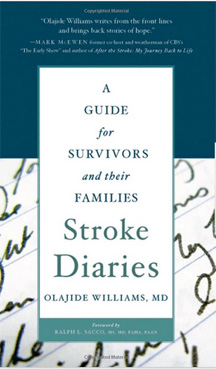August 21st, 2010 by John Mandrola, M.D. in Better Health Network, Health Tips, News, Opinion, Research
No Comments »

I saw a prescient story that linked antagonistic personality traits and cardiovascular risk. It was simply impossible to ignore. Low hanging fruit, no doubt.
The article highlights an NIH-sponsored study [published in the August 16th journal Hypertension] that looked at the effects of antagonistic traits — agreeableness, per se — on heart health. Yes, you read it right — agreeableness. To quantify agreeableness, the researchers used a personality questionnaire which included six traits: Trust, straightforwardness, altruism, compliance, modesty, and my favorite…tender-mindedness.
Your hypothesis is probably right: People who were distrustful, cynical, manipulative, self-centered, and quick to express anger fared worse. But please don’t dismiss this as just another mundane study proclaiming the risks of an angry personality. The specifics of the findings and their implications really hit hard. Read more »
*This blog post was originally published at Dr John M*
August 20th, 2010 by BarbaraFicarraRN in Better Health Network, Health Tips, Research
No Comments »

 We’ve all made the excuses: You can’t face the drive to the gym, you’re too tired at night, getting up in the morning is a chore, or it’s too hot or cold outside. So you cozy up on the couch in front of the television. If you’re a couch potato, you’re a gambler — with your life.
We’ve all made the excuses: You can’t face the drive to the gym, you’re too tired at night, getting up in the morning is a chore, or it’s too hot or cold outside. So you cozy up on the couch in front of the television. If you’re a couch potato, you’re a gambler — with your life.
Unfortunately you’ll need a big sofa because you’re not the only one whose heart isn’t in physical activity. About 60 percent of adults in the U.S. are not getting the exercise they need, according to a report from the U.S. Surgeon General.
It’s time to get up and face — or better yet, dance to — the music! Here are a few facts that may get you moving for your heart’s sake. Read more »
*This blog post was originally published at Health in 30*
June 12th, 2010 by GruntDoc in Better Health Network, True Stories
3 Comments »

Recently I was seeing a patient who was left with somewhat of a stutter after a prior stroke. It was a long history and probably longer for the patient, who had to work very hard to be understood through an unwanted speech impediment.
Inexplicably, when I walked out of the room I started to stutter, too — I wasn’t trying to make light of the patient’s problem, and I had to stop talking for a few moments before I could speak in my normal cadence. It was super-strange, like my brain heard the new cadence and said “Oh, that’s how you do it.” Awful.
It was embarrassing and weird. Fortunately the patient didn’t hear it, and I apologized to the staff who did. I have no idea why my mouth-brain connection picked that anomaly to repeat. Strange.
Anyone else have this?
*This blog post was originally published at GruntDoc*
June 1st, 2010 by KevinMD in Better Health Network, Health Policy, Opinion, Research
No Comments »

How fast should an ambulance go? The stereotypical speeding ambulance with lights flashing and sirens blaring is the image that most conjure up. But recent data suggests that transport speed may be overstated.
In a fascinating piece from Slate, emergency physicians Zachary F. Meisel and Jesse M. Pines examine that very question. They cite a recent study from the Annals of Emergency Medicine, which concluded that a fast transport speed didn’t necessarily save lives. Read more »
*This blog post was originally published at KevinMD.com*
May 25th, 2010 by Dr. Val Jones in Book Reviews
1 Comment »
 I had the distinct pleasure of reading Stroke Diaries this past week. Its author, Dr. Olajide Williams, is a dear friend and contributor to this blog. I first met Dr. Willliams (or Jide, pronounced “gee-day”) as a young neurology resident at Columbia Presbyterian Hospital. I was in my third year of medical school and rotating through the neurology service.
I had the distinct pleasure of reading Stroke Diaries this past week. Its author, Dr. Olajide Williams, is a dear friend and contributor to this blog. I first met Dr. Willliams (or Jide, pronounced “gee-day”) as a young neurology resident at Columbia Presbyterian Hospital. I was in my third year of medical school and rotating through the neurology service.
A few things struck me about Jide back then. First, he was the only resident who never got an answer wrong when put on the spot (aka “pimped”) by his superiors. I was in awe of his knowledge base — something he’d developed by disciplining himself to do additional reading long after his peers were asleep.
Second, Jide was always immaculately dressed — his stylish, brightly-colored shirts and ties complimented his dark skin and cheerful, British accent.
And third, his love for his patients and medical students was abundantly clear, as he always went out of his way to educate them in the most friendly and sensitive of ways. In short, Jide was an inspiration to me — as a teacher, a neurologist, and a friend.
Stroke Diaries is a reflection of Jide’s character — a perfect blend of poetic vignette and straightforward science. This short book (130 pages) chronicles the true life stories of various patients who’ve suffered strokes. Read more »




 We’ve all made the excuses: You can’t face the drive to the gym, you’re too tired at night, getting up in the morning is a chore, or it’s too hot or cold outside. So you cozy up on the couch in front of the television. If you’re a couch potato, you’re a gambler — with your life.
We’ve all made the excuses: You can’t face the drive to the gym, you’re too tired at night, getting up in the morning is a chore, or it’s too hot or cold outside. So you cozy up on the couch in front of the television. If you’re a couch potato, you’re a gambler — with your life.










